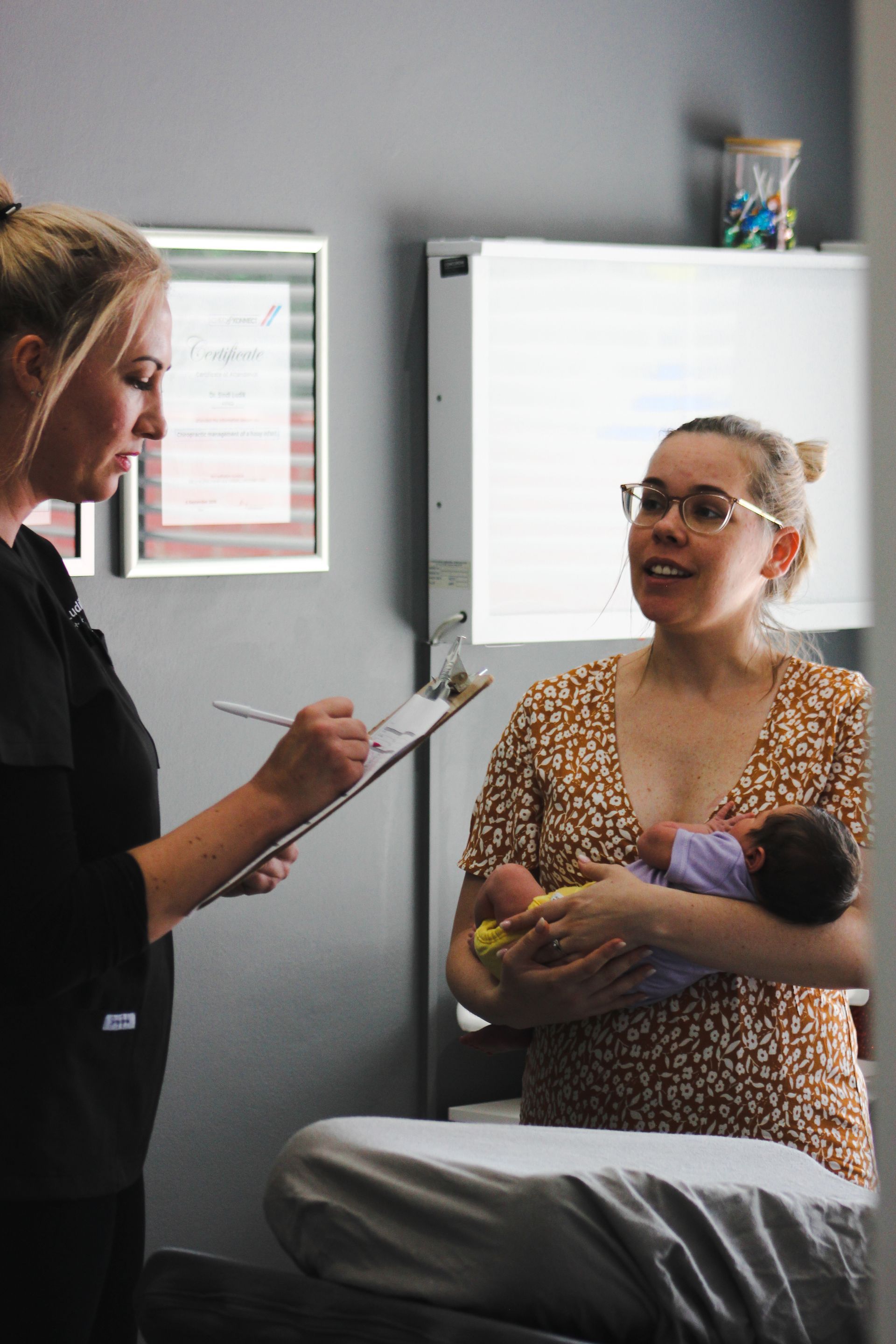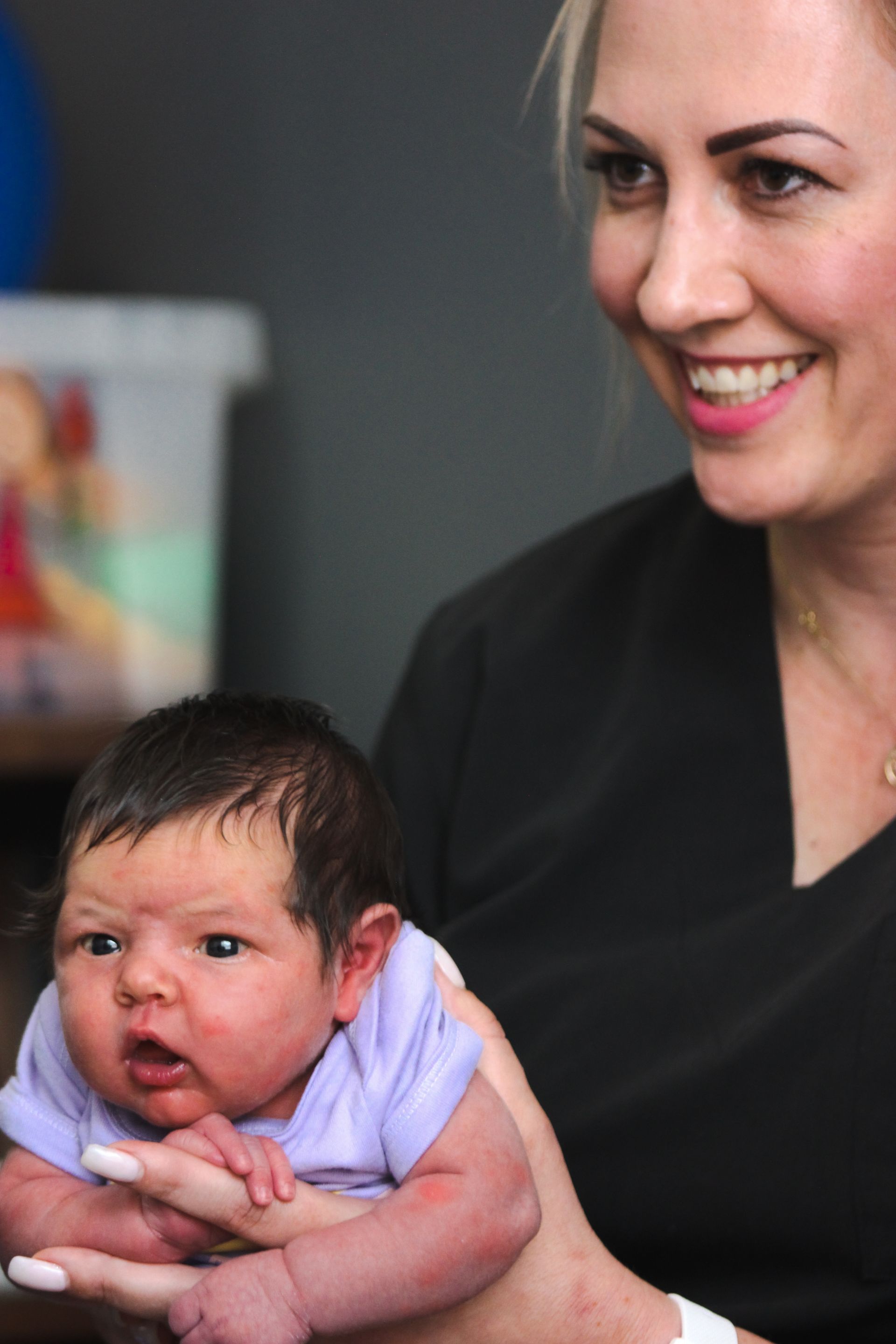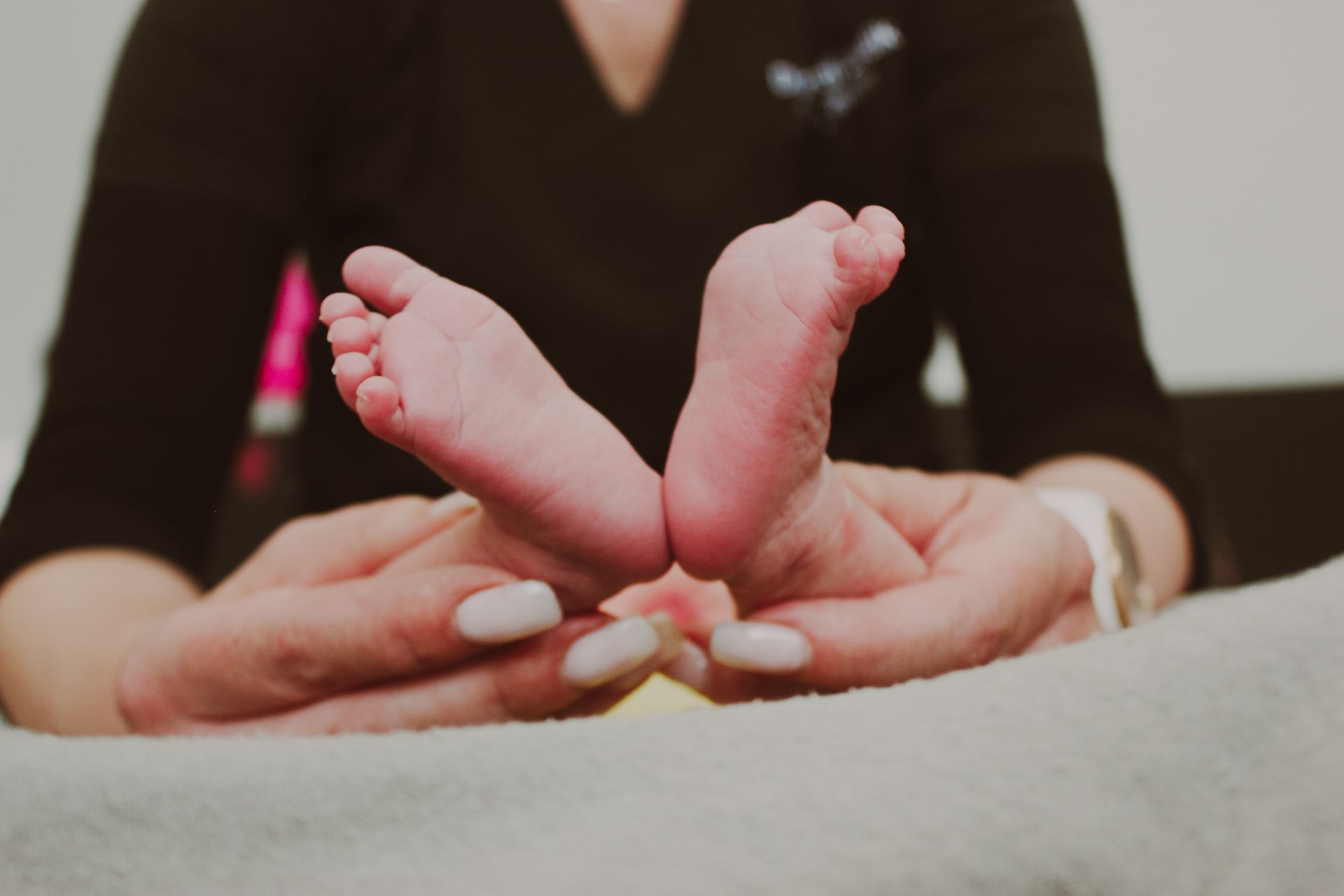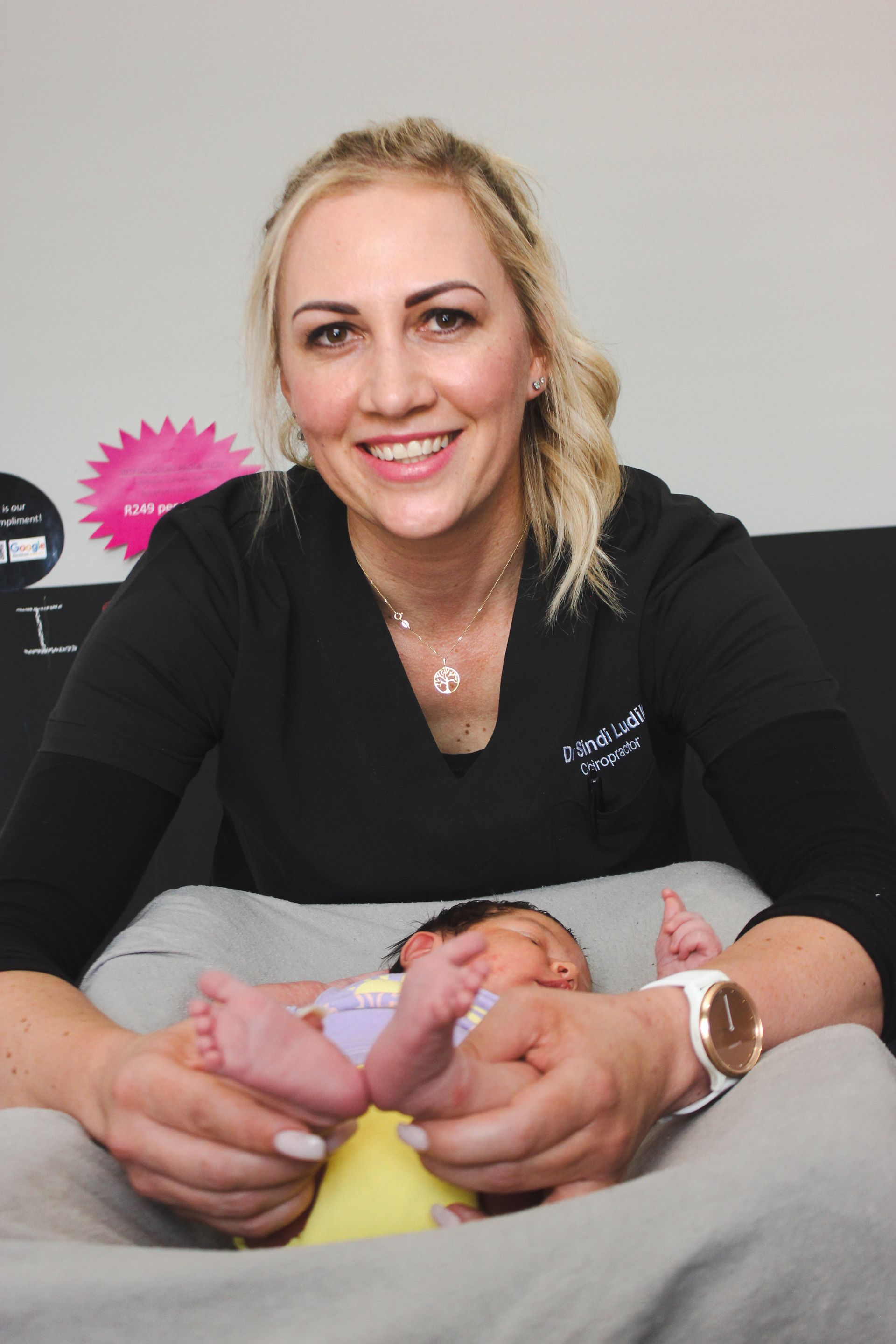ORTHObaby
because babies need care too...
Chiropractic is a form of medicine concerned with the diagnosis, treatment and prevention of mechanical disorders affecting the neuromusculoskeletal (NMSK) system. It is a hands-on, non-invasive and medicine-free practice that safely and effectively relieves pain
and discomfort and restores normal function to the NMSK system.
WHY SHOULD MY BABY SEE A CHIROPRACTOR?
The Treatment of Neuromusculoskeletal (NMSK) Conditions
Most babies undergo some form of strain or trauma and as a result may suffer from a neuromusculoskeletal (NMSK) condition, i.e. conditions affecting the nerves, soft tissue (muscles, ligaments, tendons, discs), joints and spine of the body.
Trauma may happen during birth due to the pressures and forces exerted onto your baby's body. Some babies may even experience trauma in utero from lying in an awkward position (breech positions, twins, low amniotic fluid levels, umbilical cord entanglement, larger babies, etc.). Babies may also experience trauma after birth if handled incorrectly (holding and sleeping positions, dressing and undressing, excessive time spent in car seats or strollers, etc.) or if they sustain a fall or injury.
NMSK conditions cause pain and dysfunction which affect the structure, function, growth and development of your baby.
Typical signs and symptoms include:
- Intense crying that may seem more like screaming or an expression of pain
- Crying for no apparent reason
- Extreme fussiness even after crying has diminished
- Predictable timing (episodes often occurring in the late afternoon or early evening)
- Facial discolouring (skin flushing or blushing)
- Body tension (pulled up or stiffened legs, stiffened arms, clenched fists, arched back and tense abdomen)
- Reluctancy to perform basic tasks and expected milestones (tummy time, sitting, crawling, walking, etc.)
The Treatment of Congenital Anomalies
Some babies may have a congenital condition (a.k.a birth defect, disorder or malformation) which is a structural or functional anomaly that occur in utero. These can be identified before birth, after birth or later in life.
These conditions also cause strain and sprain of the NMSK system which cause pain and dysfunction and can greatly affect the structure, function and development of your baby.
The signs and symptoms of each condition is unique:
- Birth defects (club feet, plagiocephaly, brachycephaly, torticollis, hip dysplasia, incomplete formation of fingers, toes, arms or legs, etc.)
- Chronic conditions (bleeding disorders, childhood cancers, kidney or urinary tract disease, slow growth or short stature, cystic fibrosis, sickle cell disease, thalassemia, etc.)
- Developmental conditions (autism spectrum disorders, attention deficit/hyperactivity, developmental delay, failure to thrive, learning disability, loss of developmental skills, low muscle tone, mental illness, mental retardation, speech problems, seizures, etc.)
- Sensory deficit disorders (extreme farsightedness, extreme nearsightedness, hearing loss, retinal or other visual problems, etc.)
The Treatment of Sleeping Difficulties
Babies who experience pain and discomfort caused by NMSK conditions may find it difficult to sleep. Good quality sleep is essential to the development of young bodies and minds - it helps with the development of memory and alertness and it is essential to building a strong immune system.
Typical signs and symptoms include:
- Awakening and crying often in the night
- Sleeps for short periods of time
- Crying when you leave the room
- Refusal to go to sleep without a parent nearby
- Clinging to the parent at separation
- Loud snoring
To Improve General Health and Wellness
Prevention is better than cure...chiropractic treatment improves the optimal health, wellness and development of your baby!
WHEN SHOULD MY BABY SEE A CHIROPRACTOR?
At ORTHOlifestyle we recommend regular checkup and treatment sessions for your baby - soon after birth (within 4 weeks) and at 4, 6, 9, 12 and 18 months of age. Your chiropractor will work out a treatment protocol relevant to your baby's needs.
WHAT CAN MY BABY EXPECT FROM THEIR VISIT?
A typical visit includes the following:
- Medical history taking
- Assessment upper or lower limbs and/or spine
- Soft tissue therapy
- Adjustments, mobilisations, traction of the spine and joints
- Assessment of developmental milestones (social and emotional, language and communication, cognitive, physical development as well as the exclusion of red flag symptoms) at 4, 6, 9, 12 and 18 months of age.
- Measurement of height, weight and head circumference
- Activities to do at home
- Referral for diagnostic tests if need be
- Referral to another therapist or specialist if need be



